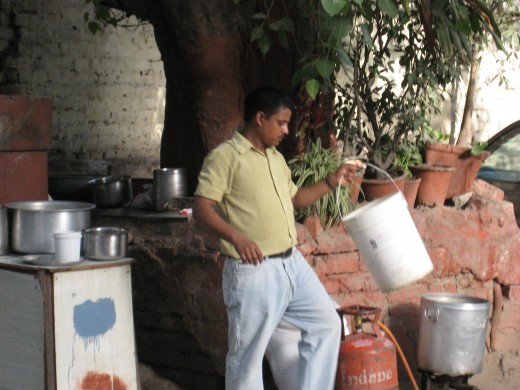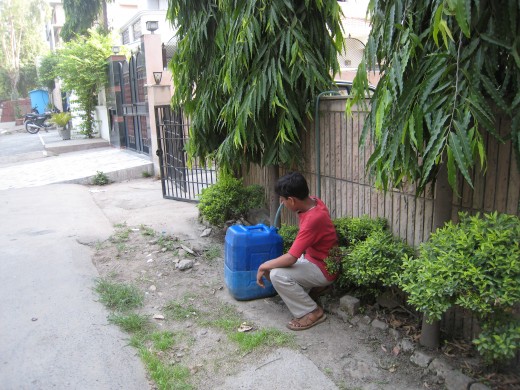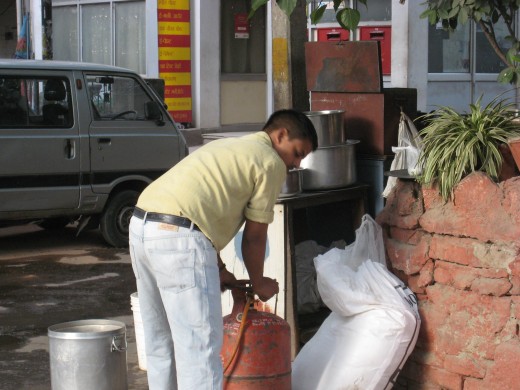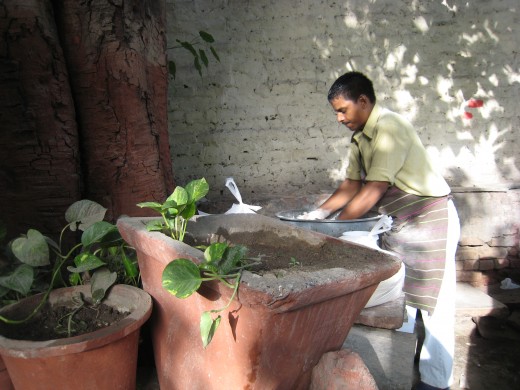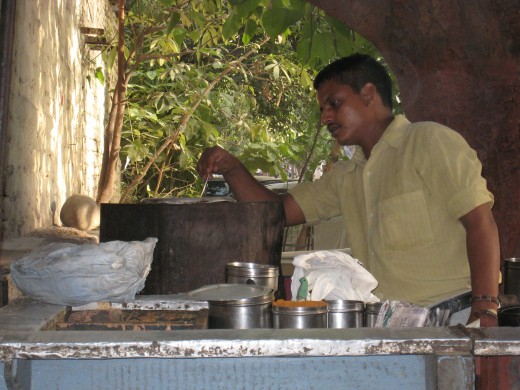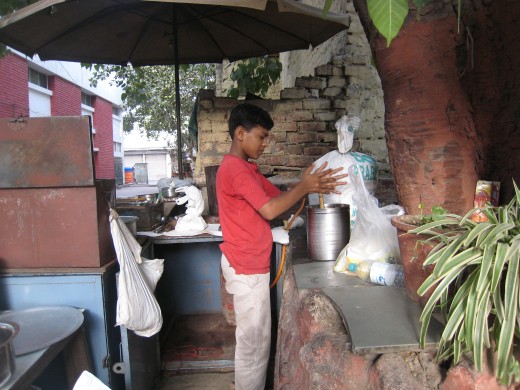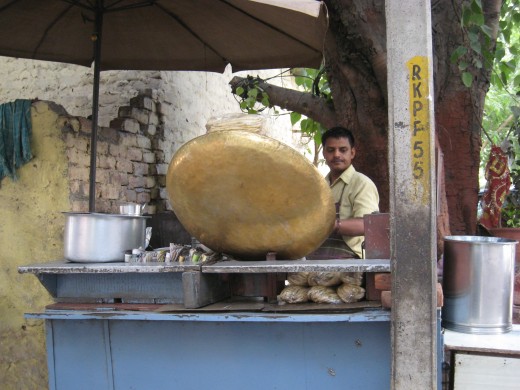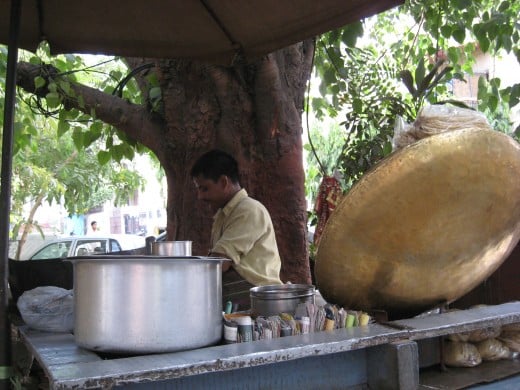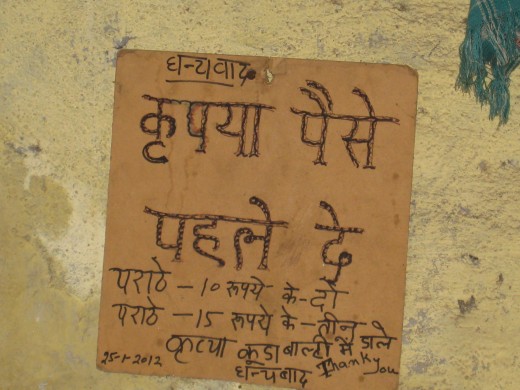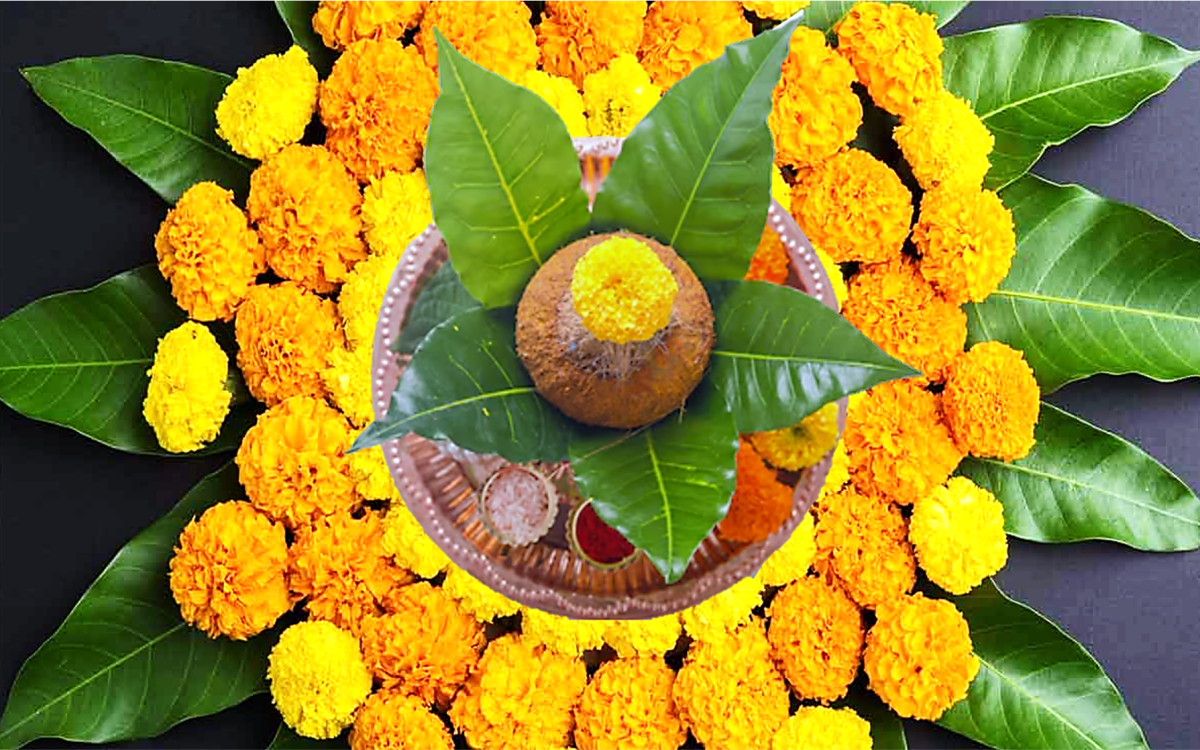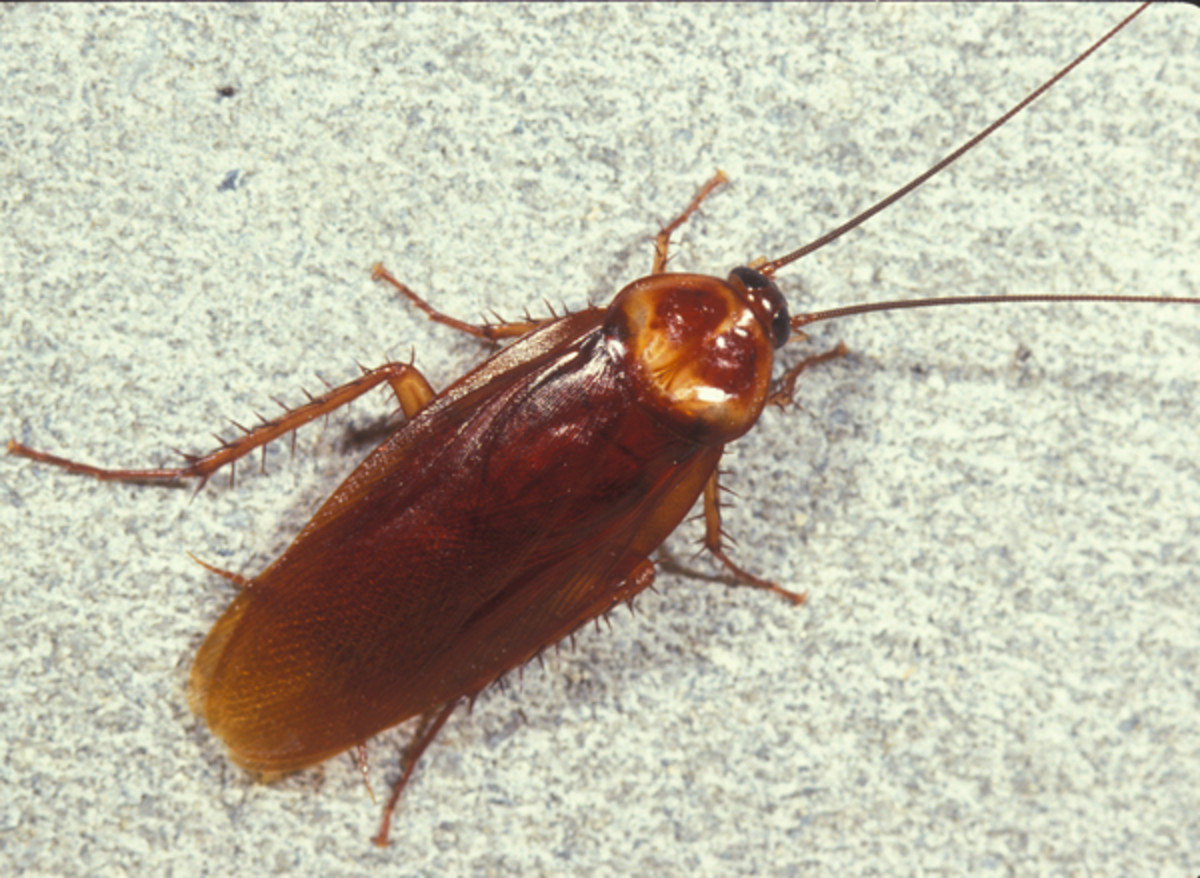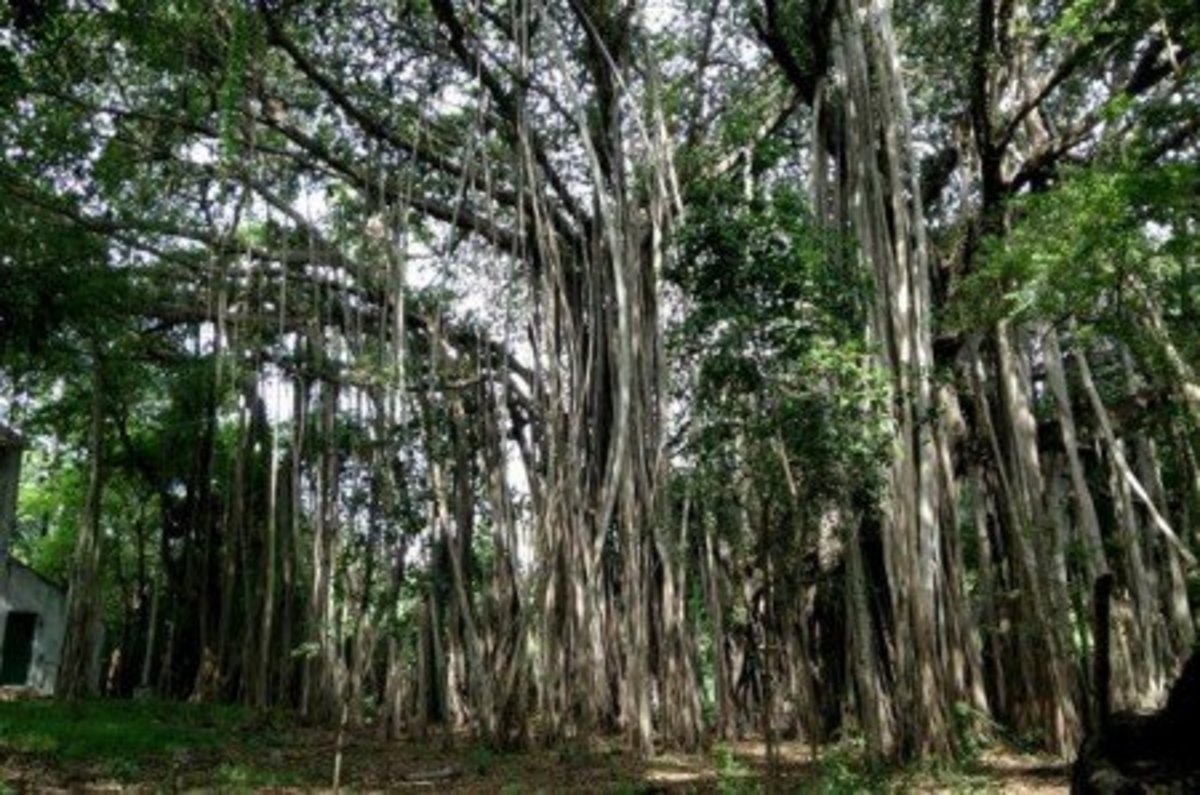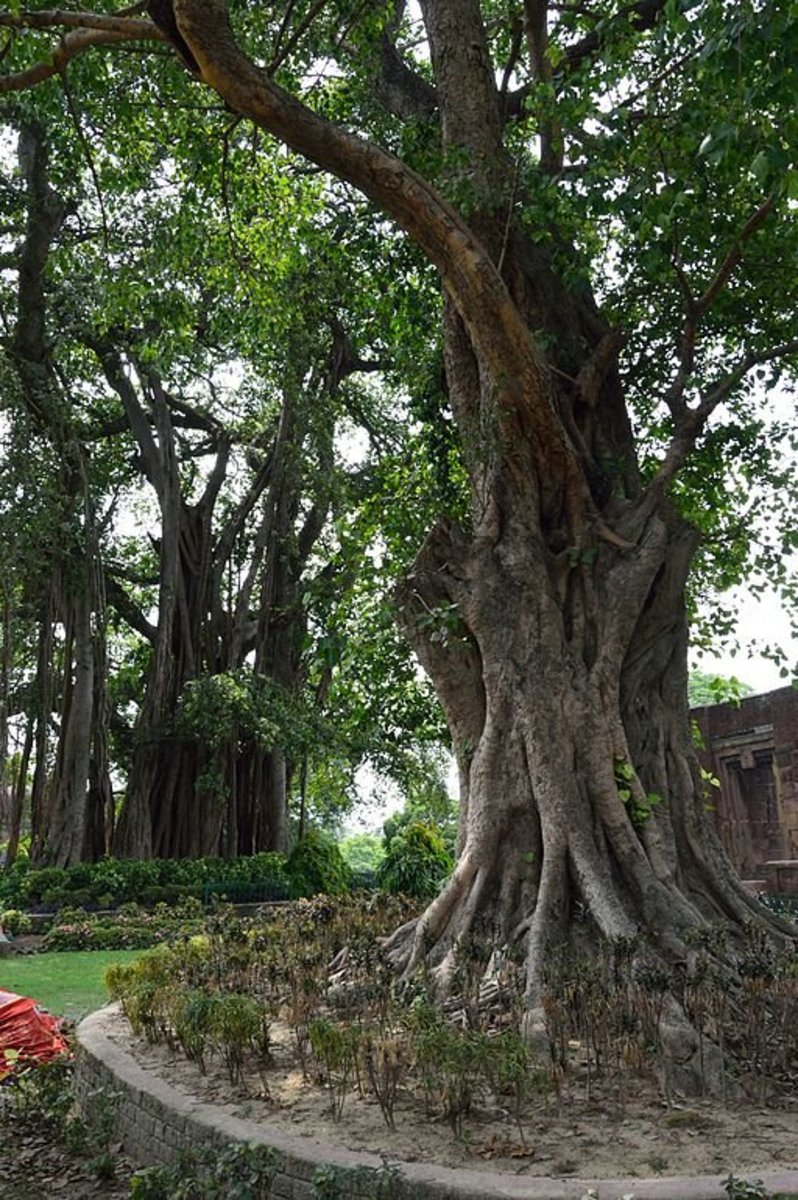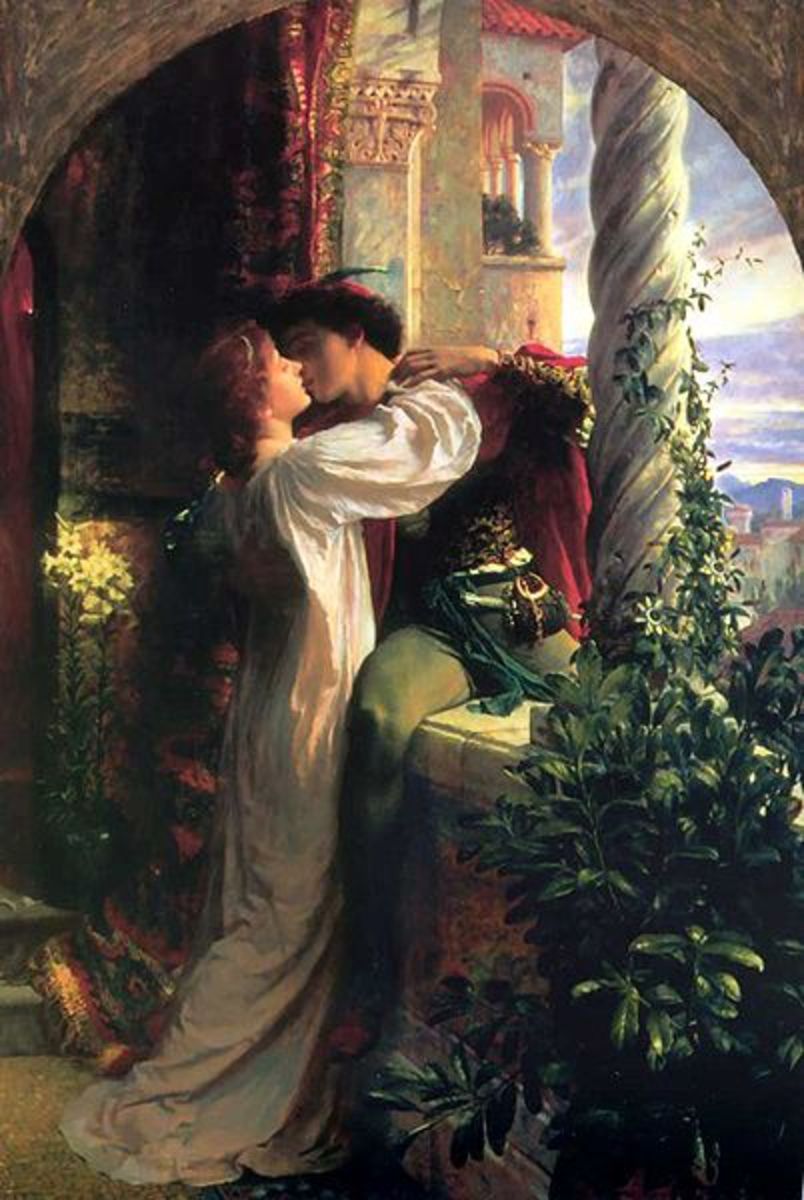Finger Lickin' Good!
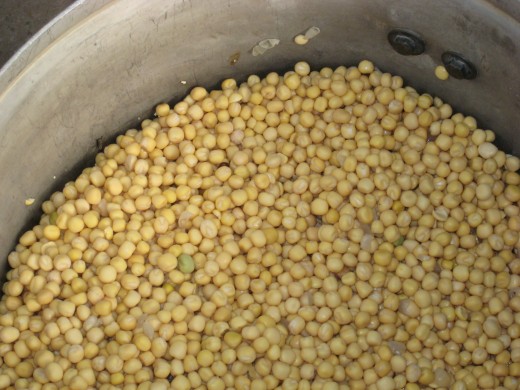
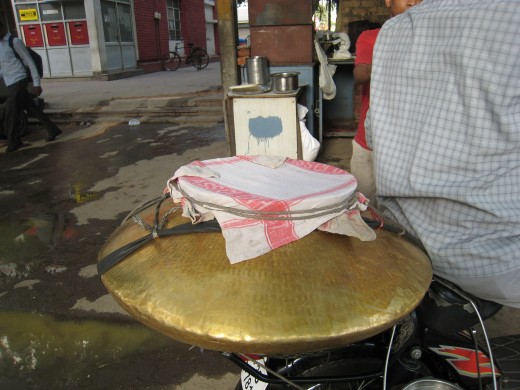
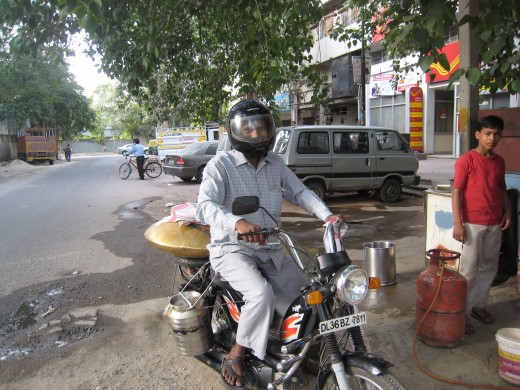
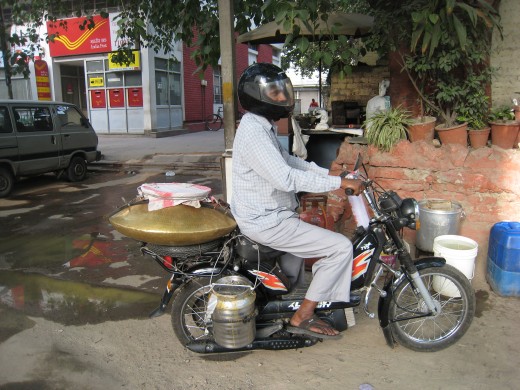
Kalu's kulchas - for a quick bite.
He comes in like a knight riding his steed, complete with his helmet on his head. Behind him on the pillion seat, he straps his shiny shallow brass paraat in which he brings the fresh batch of chhole (cooked chick peas) for the day.
Elves at work
His elves are there before him, even before six in the morning. The younger one, in his jeans and singlet, sweeps with firm and sure strokes and cleans around the banyan tree, making sure there is not a trace of dust or leaves or poly bags strewn around from the market activity of the day before. He doesn’t wait for the municipal corporation appointed sweeper to come with a handkerchief tied on his face rather like a bandit, his broom with the long handle strapped to his motorbike and start sweeping. After cleaning the area, they sprinkle water on the swept space making sure that the dust settles.
The thick set bare bodied older elf, with only a green gamchha around his waist, fills large jerry cans of water from a hosepipe slung over the wall of the house in front of the banyan tree. The jerry cans are so large and once filled with water so heavy, that he can barely carry them across the street. With his legs astride the jerry can, he waddles with great difficulty from the house to the stall.
Setting up shop
Meanwhile, the other two elves pull off the polythene covers from the make shift counter and bring the small table out from behind to elongate their work station surface area. A large roomy garden umbrella and the banyan tree protect their stall from the elements. One pulls out a red gas cylinder while the other elf quickly pulls out a bag full of wheat flour from the large white sack. The younger one hops on to the little raised red brick wall they have made around the banyan tree and starts kneading the dough for the parathas (best described as pan fried hand made flat bread) with great gusto, his little body bobbing up and down with the movement. After giving it quite a few power packed punches to soften it, he slaps the ball of dough a few times and with a satisfied smile transfers it to a poly bag and places it on the counter next to the gas stove. A large tava (griddle) is placed on the stove with an assortment of other kitchenware including a ladle with a long handle to spoon out the oil on to the tava and a spatula to turn the paratha over on the hot tava while frying it.
In between, they also get ready for the day and by the time Kalu comes in with the freshly cooked chhole, his minions are all dressed and dapper in their jeans rolled at the bottom and striped T shirts. Apart from his distinctive brass paraat which gives the peas their specialty, Kalu brings in the chhole in two steel milk canisters balanced symmetrically on either side of his motor cycle, which are then transferred to aluminum utensils so that they may be easily heated and served during peak hours.
Kalu does his share of the work too. Seated on the spare gas cylinder, he slices onions finely and swiftly, almost like a man possessed. A few slices of onions, a lemon wedge and a fresh green chilli complete the plate of chhole, which is served in a small pattal (bowl) made from leaves of the sal or the banyan tree, stitched together with small sticks, with freshly made parathas or kulchas (leavened flat bread) served on a page torn out of an old magazine. A jug of water is kept on the little wall around the tree for customers to drink from or even wash their hands with, before and after the meal.
The day starts
Customers start trickling in from the morning itself. Some stop by for a quick breakfast before starting the day. It’s the favourite meeting place for the kabariwallahs (men who collect old newspapers, junk or scrap from house to house) while they spin around the locality on their cycles. The patrolling policemen in their white jeep stop here for a while for a bite of Kalu’s kulchas, before ascertaining that’s all well with their beat. During lunch time, Kalu does brisk business. All the plumbers, electricians and other daily wage workers, who weave in and out of the market, throng here for a hearty and reasonably priced lunch. The local hijras (eunuchs/ transgenders) in their shiny red Maruti van stop here everyday around 10.30 or 11 in the morning. They hitch up their sarees exposing thick, hairy legs and enjoy a small snack which they wash down with hot sweet cups of tea from the neighbouring vendor. After which they decide where to go and which household to bless for a new marriage or a new baby, in exchange for some money. Sometimes, even madames in their swanky cars stop and ask a little shyly for the channas to be packed quickly and then taken away, to be eaten in the privacy of their dining rooms, away from inquisitive eyes.
Disruption - pay up protection money or else
But it’s a difficult day when the “committee” descends unannounced. Kalu and his elves have to run helter skelter to save their kulchas and channas. They run to the house across the road and keep their pots and pans in the drive way. Two of them quickly dismantle the “counter” and run with the small table into the service lane in front. The jerry cans filled with water are also hidden from view. There is palpable disturbance in the air as when a storm is brewing. The fruit sellers run with their carts laden with fruit as do Shyam's (the vegetable seller) men who try to contain their ware in a smaller space. The carts for hire used to ferry heavy stuff from the market are also removed fast before they can be impounded by the baton brandishing heavy handed policemen, oh-so-very righteous for the day. Sometimes, all makeshift tables and carts are confiscated in a truck brought in for the purpose. Peace is usually restored in the area when the hafta (protection money) has been collected by the rampaging policemen.
After which, it’s back to brisk business once again for Kalu’s kulchas.
The elves at work
